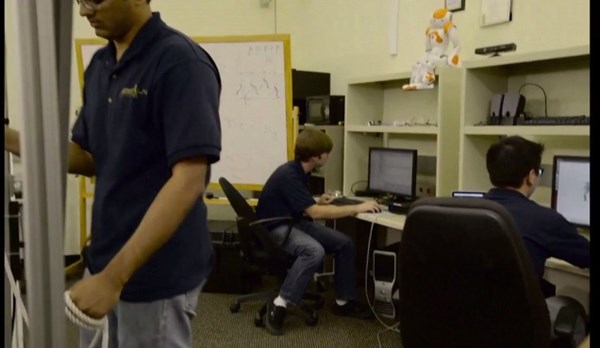Not Subtractive or Additive, But Formative Manufacturing
With all the talk about subtractive and additive manufacturing these days, this news about a third wave of numerically-controlled manufacturing, known as robotic blacksmithing, caught my attention.
Share

With all the talk about subtractive and additive manufacturing these days, this news about a third wave of numerically-controlled manufacturing, known as robotic blacksmithing, caught my attention. It also shows another way organizations are trying to get kids excited about manufacturing careers.
LIFT, a Detroit-based public-private partnership that develops and deploys advanced lightweight metal manufacturing technologies, and education and training initiatives, along with the Center for Design and Manufacturing Excellence at The Ohio State University, will launch a national Robotic Blacksmithing Competition next month through which student teams compete for $50,000 in prizes.
This competition introduces students to digital, or robotic, blacksmithing technology and challenges them to make arbitrary, numerically-described objects by re-shaping materials through plastic deformation and incremental forming processes. Students will use robotics to form three useful items out of materials of increasing difficulty and importance. Clay will be used first followed by soft and hardened metals. The competition is “open” which means that only the materials used and desired output is defined, not the process used to achieve it.
Student teams can register this month and work through March 2017. It is open to high school, community college, career and technical college, and college and university students. Judging and winner announcement will take place in April 2017. Check out this video that explains it all or visit www.roboticblacksmithing.com.
Related Content
-
MMT Chats: The Connection Between Additive Manufacturing Education and ROI
This MMT Chat continues the conversation with Action Mold and Machining, as two members of the Additive Manufacturing team dig a little deeper into AM education, AM’s return on investment and the facility and equipment requirements to implement AM properly.
-
3D Printing Technologies for Moldmaking Applications
3D printing technologies, from conformal cooling to complex mold building, are making an impact on the moldmaking industry, one innovation at a time.
-
Advancing Moldmaking and Plastics: Trends in 3D Printing, Automation and Sustainability
NPE 2024 showcased the latest trends and technologies in innovation, efficiency and sustainability for moldmakers and molders, featuring advancements in 3D printing, automation, design and virtual reality/augmented reality/artificial intelligence.
















